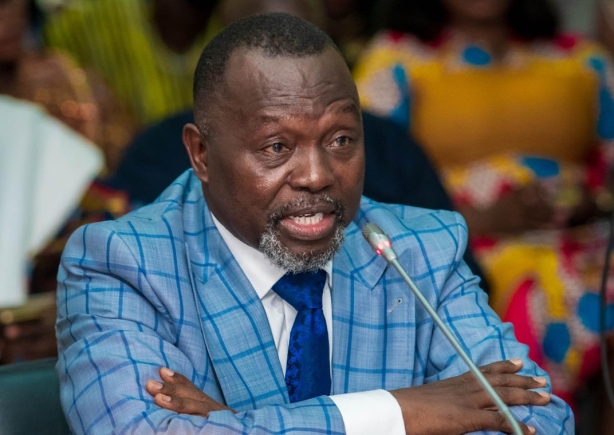adverts
A former Chief Executive Officer of the National Pensions Regulatory Authority (NPRA), Dr Daniel Seddoh, has raised alarm over the long-term financial burden taxpayers may face following the state’s decision to drop prosecution against Dr Kwabena Duffuor and seven others after recovering 60% of funds allegedly lost through bank-related malfeasance.
Dr Seddoh, speaking on JoyNews’ PM Express, said the decision—announced by the Office of the Attorney General in collaboration with EOCO and other agencies—may seem pragmatic on the surface but comes with serious accountability and fiscal consequences.
“I wasn’t surprised, because this case took us how many years, between seven and eight years?” he noted, referencing the sluggish nature of Ghana’s legal system. “We’ve lost lives because of this whole thing.”
adverts
The Attorney-General’s office had explained that after successfully recovering 60% of the over GH¢5 billion involved in the case, it would reassess the need for further prosecution, citing public interest and cost-benefit considerations.
But Dr Seddoh questioned the wisdom of halting legal proceedings just because a portion of the money has been recovered.
“Some people will tell you it’s better than nothing, but I have deeper questions to ask than telling me it’s better than nothing,” he argued. “When you take 60% and you can’t get the other 40%, who is going to finance that? Because ultimately, the money belongs to depositors.”
He stressed that banks do not operate with their own capital but instead rely on funds entrusted to them by depositors and stakeholders. “It’s a relationship of trust… that anytime [depositors] go for their money, they will get it. What has happened has broken that trust.”
The fallout of the banking sector crisis, he said, has led to depositors losing access to their funds, with minimal support from the state. “There was nobody to come to the air rescue,” he lamented.
Dr Seddoh also criticised the approach taken by the state to address the crisis—describing it as reactive and unsustainable. “We use a certain approach to resolve the issue, and it just comes back to bite us. Probably this is not the most efficient approach.”
Rather than pumping money into collapsing banks as sunk costs, he proposed a strategy that would have focused on revitalisation. “We should have brought in investment—got people in, injected capital, brought in stronger management to turn the bank around, and eventually sold it to recover the money.”
He warned that the current approach—treating losses as unrecoverable expenses—will ultimately burden Ghanaian taxpayers, many of whom are already struggling.
“The approach we have used is to throw money at it as an expense that will never come back. And that ultimately falls on the taxpayer, which includes the depositor.”
Click the link Puretvonline.com | WhatsApp Channel to join the WhatsApp channel
GOT A STORY?
Contact/WhatsApp: +233243201960 or Email: manuelnkansah33@gmail.com


